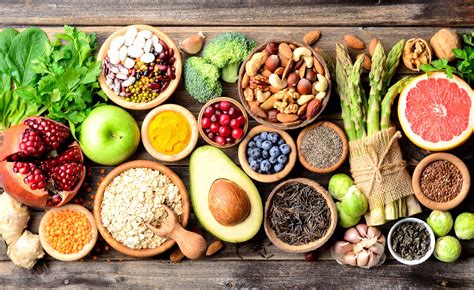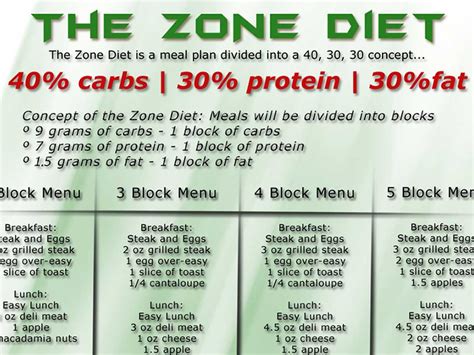Discover the benefits of the mushroom diet, learn about different types of mushrooms, and how to plan meals for potential health impacts.
Understanding the Mushroom Diet
Contents
The mushroom diet is a popular trend in the health and wellness world, and for good reason. This diet focuses on incorporating various types of mushrooms into your meals in order to take advantage of their numerous health benefits. Mushrooms are low in calories and high in nutrients, making them a great addition to any diet. They are also packed with antioxidants, which can help boost your immune system and protect your body from disease.
Additionally, mushrooms are a great source of protein, making them a fantastic option for vegetarians and vegans who are looking to increase their protein intake. They are also high in fiber, which can help aid in digestion and keep you feeling full and satisfied. The wide variety of mushrooms available also means that you can easily incorporate them into your meals in a variety of different ways, ensuring that you never get bored with your diet.
When following the mushroom diet, it’s important to choose a wide variety of mushrooms in order to take advantage of the different nutrients they offer. Some popular types of mushrooms to include in your diet include shiitake, portobello, oyster, and button mushrooms. Each type of mushroom offers its own unique flavor and nutrient profile, so incorporating a variety of mushrooms into your meals can help ensure that you are getting the most out of the diet.
One of the greatest benefits of the mushroom diet is the potential impact it can have on your overall health. Research has shown that mushrooms may have anti-inflammatory, anticancer, and immune-boosting effects. Additionally, they are low in sodium, which can be beneficial for those looking to lower their blood pressure. This makes them a great option for anyone looking to improve their overall health and well-being.
Benefits of Incorporating Mushrooms
When it comes to improving our health and wellness, incorporating mushrooms into our diet can offer a variety of benefits. Mushrooms are low in calories and fat, making them a great option for those looking to maintain a healthy weight. They are also a good source of fiber, which can aid in digestion and help prevent constipation. Additionally, mushrooms are packed with essential nutrients such as vitamin D, potassium, and B vitamins, which are important for overall health.
Another significant benefit of incorporating mushrooms into our diet is their potential to boost our immune system. Many varieties of mushrooms contain beta-glucans, which are known for their ability to support immune function and reduce inflammation in the body. This can help to protect against infections and diseases, keeping us feeling strong and healthy.
In addition to their nutritional value, mushrooms also offer antioxidant and anti-inflammatory properties, which can help to protect our cells from damage and reduce the risk of chronic diseases such as cancer and heart disease. By consuming mushrooms regularly, we can support our body’s natural defense mechanisms and promote overall well-being.
Finally, the versatility of mushrooms makes them a great option for adding flavor and texture to a wide variety of dishes. Whether sautéed, grilled, or raw, mushrooms can be incorporated into salads, soups, stir-fries, and more, adding a delicious and nutritious element to our meals.
Different Types of Mushrooms to Include
When it comes to following a mushroom diet, it’s important to understand the different types of mushrooms that can be included in your meals. The variety of mushrooms available can offer a range of flavors, textures, and nutritional benefits. By incorporating a diverse selection of mushrooms into your diet, you can experience a wide range of flavors and boost your intake of essential nutrients.
One of the most commonly used mushrooms is the button mushroom, which is mild in flavor and versatile to cook. Another popular option is the shiitake mushroom, known for its rich, savory flavor and meaty texture. For a more earthy and nutty taste, consider adding portobello mushrooms to your meals. And if you’re looking for a delicate and unique flavor, oyster mushrooms are a great option.
For those looking to add a pop of color to their dishes, chanterelle mushrooms are a vibrant and flavorful choice. On the other hand, cremini mushrooms are a great alternative to the standard button mushroom, with a richer and deeper flavor profile. Lastly, porcini mushrooms are prized for their intense, nutty flavor and are often used in soups and stews.
| Name | Flavor | Best Used In |
|---|---|---|
| Button Mushroom | Mild | Various dishes |
| Shiitake Mushroom | Rich, savory | Stir-fries, soups |
| Portobello Mushroom | Earthy, nutty | Grilled, stuffed |
| Oyster Mushroom | Delicate, unique | Stir-fries, risottos |
By incorporating a variety of mushrooms into your meals, you can not only elevate the flavors of your dishes but also benefit from the unique nutrients and health properties that each type of mushroom offers.
Mushroom Diet Meal Planning
When meal planning for a mushroom diet, it’s important to incorporate a variety of mushrooms to ensure that you are reaping all of their nutritional benefits. One way to do this is by including different types of mushrooms in your meal rotation, such as shiitake, portobello, oyster, and button mushrooms. These varieties not only add a delicious flavor and texture to your meals, but they also provide a wide range of vitamins, minerals, and antioxidants.
Another important aspect of mushroom diet meal planning is to consider the different ways in which you can incorporate mushrooms into your meals. Whether you choose to sauté them as a side dish, add them to salads, or use them as a meat substitute in dishes like mushroom burgers or stir-fries, the options are endless. By using mushrooms in a variety of ways, you can ensure that your meals remain diverse and enjoyable.
When planning your meals, it’s also essential to consider the potential health impacts of a mushroom diet. Mushrooms are known for their immune-boosting and anti-inflammatory properties, making them a valuable addition to any diet. By incorporating mushrooms into your meals on a regular basis, you can potentially improve your overall health and well-being.
In addition to their health benefits, mushrooms are also a versatile ingredient that can be used in a wide range of cuisines. Whether you’re cooking Italian, Asian, or Mediterranean-inspired dishes, there are countless ways to incorporate mushrooms into your meal planning. From creamy mushroom pastas to hearty mushroom soups, the possibilities are endless.
Results and Potential Health Impacts
Results and Potential Health Impacts
When following the Mushroom Diet, many individuals have reported various positive results and health impacts. One of the most common results is weight loss. Since mushrooms are low in calories and high in fiber, they can help individuals feel full and satisfied, leading to a reduction in overall calorie intake.
Furthermore, incorporating mushrooms into the diet has been associated with a reduced risk of chronic diseases such as heart disease and diabetes. The nutrients found in mushrooms, including vitamins and antioxidants, play a crucial role in supporting overall health and wellness.
Some individuals have also reported improvements in their digestive health when following the Mushroom Diet. The fiber content in mushrooms, as well as their potential prebiotic properties, can contribute to a healthier gut microbiome and improved digestive function.
It’s important to note that the results and health impacts of the Mushroom Diet can vary from person to person. While many individuals may experience positive changes, others may not see the same results. Additionally, consulting with a healthcare professional before making any significant dietary changes is always recommended.













